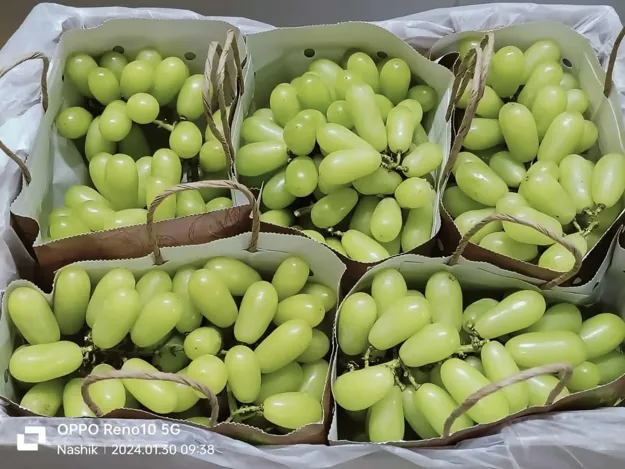Despite shipping disruptions in the Red Sea, Indian grapes keep arriving in the Netherlands in normal volumes, observes Corne van de Klundert of the Dutch company Origin Fruit Direct. "Even with those challenges, the volumes seem larger, though that's more because of an early season. For Indian exporters, not exporting isn't an option. It's their livelihood, after all. Also, only a small part of the total Indian grape production is exported. To us, it might seem like a lot, but by Indian standards, it's quite moderate," he says.
"The Indian season has just started, and the first harvest we're now receiving isn't the best, quality-wise. The extra transit time does, thus, cause occasional problems, but the quality should improve over the coming weeks. India has had good cultivation conditions and excellent weather over the past few weeks. Market conditions have been good so far, too. White Thompson grapes in punnets are priced between €14.50 and €16."

ARRA 15 packed in Nashik (India) in week 5
"However, there will probably be increased market pressure in the coming weeks as larger volumes arrive. But, there will also be excellent opportunities to promote grapes," Corne adds, "for both the white seedless ones from India and the red seedless grapes from South Africa. Some of those have been in transit longer than intended."
"The South African grape season faced several logistical challenges due to delays at the port of Cape Town. The solution was to ship more through Namibia and the Eastern Cape, including conventional methods. But that means the fruit is in transit for longer. The weather in South Africa was quite good, though rain and hail recently caused damage in the Hex River region," Corne concludes.
 For more information:
For more information:
Corne van de Klundert
Origin Fruit Direct
Tel.: +31 (0) 643 241 489
[email protected]
www.originfruitdirect.nl
